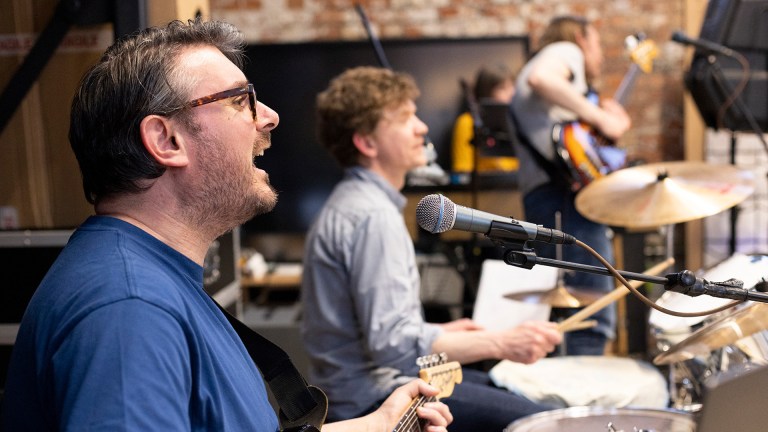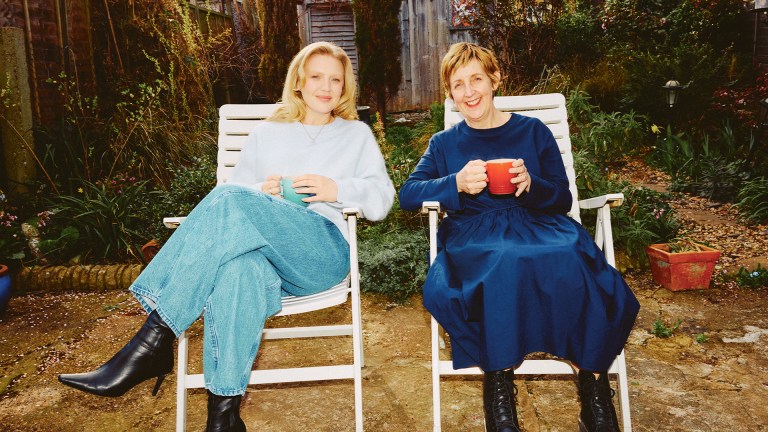Just before the turn of the millennium, there was one album that seemed to follow me everywhere. From nightclubs to cafes, from TV shows to the ads in between, an unlikely marriage between creakily recorded blues and gospel ballads and glimmering electronic beats. Moby’s multiplatinum-
selling album Play, perhaps owing to the fact that all 17 tracks were eventually commercially licensed, was at one time inescapable.
The samples that gave Moby’s LP its spiritual backbone came from a CD box set called Sounds of the South: A Musical Journey from the Georgia Sea Islands to the Mississippi Delta. A collection of field recordings gathered by the pioneering folklorist and ethnomusicologist Alan Lomax. Lomax, who died in 2002, dedicated his life to preserving, documenting and disseminating traditional music and culture from around the world. His recordings, not to mention his photographs, films, writing and radio broadcasts, have become a bedrock of cultural heritage, capturing the voices and stories of countless musicians and communities that might have otherwise been lost to history. Without his meticulous inventory the modern musical landscape would look entirely different, regardless of the impact of Moby’s success.
Alan Lomax spent over six decades travelling the world, making recordings of various musical genres, most notably blues, gospel, work songs, sea shanties, ballads and spirituals. Born in Texas in 1915 to a concert pianist mother and a prominent musicologist father, his interest in folk music began at home and was piqued at an early age. As a teenager he began accompanying his father on folklore research trips and at age 25, while working as a music editor for CBS Radio, he embarked on his own first significant project, travelling with his wife and a group of researchers across the American south. The team spent several months listening, recording and documenting their way through Louisiana, Mississippi, Alabama, Georgia and other southern states, discovering blues and folk songs performed by African-American artists which had never been heard outside of their respective communities and neighbourhoods. It was on this trip that Lomax discovered Huddie Ledbetter, better known as Lead Belly, and a young guitarist called Muddy Waters, both of whom would later become instrumental in the popularisation of blues music around the world.
- The enduring influence of American original Elizabeth Cotten
- The 80 best Bob Dylan songs – with not a greatest hit in sight
- Why you should check out Jonny Trunk and his treasure trove of strange music
During the mid-1940s, as his recordings began to migrate from the fringe to the mainstream, Lomax started working with Columbia Records, producing albums of traditional music and hosting a radio show called The Midnight Special, sharing discoveries from his various research trips. The show is often credited with igniting the folk music revival of the 1950s and 1960s, inspiring many young musicians to emulate and explore traditional sounds, among them the likes of Pete Seeger, Bob Dylan and Joan Baez.
Lomax’s use of technology was markedly ahead of its time. By the 1970s he had begun to experiment with new techniques for recording, filming and archiving music in order to realise his vision of an accessible ‘global jukebox’. This eventually took shape, first as the collected archive at the Association for Cultural Equity at the Fine Arts Campus of New York City’s Hunter College, and later as the revelatory Lomax Digital Archive (LDA) website. Created in 2012, the LDA provides free online access to photographs and tape recordings, transcriptions of Lomax’s radio programmes and a selection of clips from his films and video work.
The website offers a fascinating, visceral portal to 20th-century cultural history. To sit in my own home listening to a scratchy 1933 recording of Kentucky fiddle player Blind Jim Howard singing acapella, a cautionary tale about a fishing expedition gone wrong is, to me, a richer experience than one I’ve had visiting any museum. The vast Lomax discography is also listed at the Library of Congress, and reissues, box sets and compilations continue to emerge. A new remastered collection of his early recordings of Delta blues legend Fred McDowell is set for release later this year. Although the cleaned-up audio may sacrifice a certain amount of nostalgic cosiness, it also allows the primal elements of the songs, such as the urgent howl of Drop Down Mama or the hypnotic metre of Good Morning Little Schoolgirl, to shine through.










